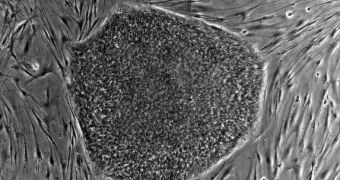Lately, more and more companies from the private sector have begun to team up with partners from academia, in order to conduct investigations on multiple lines of stem cells. These studies are mainly aimed at using these cells to screen for any potential drugs that certain corporations may be manufacturing. At this point, many types of cells, covering some of the body's most important organs, are very difficult to come by, so research is conducted only on substitute lines, or on animal cells. With this new type of partnership, it may become possible to create new drugs faster, Nature News reports.
This interest that companies have in the stem-cell industry has started going beyond looking at these cells as a potential source of treatment for various conditions. This new type of research will be aimed at using the protocols and stem-cell lines developed by academics and research institutes to screen for potentially new therapies for cardiovascular diseases, as well as for other medical conditions. At this point, there are several new treatments awaiting testing, but the unavailability of stem-cell lines makes researchers not too keen on trying them out on substitute cells.
Various companies are using different types of stem cells for their work. Some went for using embryonic stem cells, whereas others opted for creating induced pluripotent stem cells (iPSC) from scratch, and then put them to the test. However, most researchers admit that these are the early days of this industry, in the sense that cooperation policies and methodologies are not yet set in place. In the first few years, science will most likely be conducted on stem cells, but some say that technologies to differentiate these cells into fully grown, adult ones should be developed faster.
“What needs to be demonstrated is the actual application of the technology,” John Walker explains. He is the chief executive of the San Francisco, California-based stem-cell company iPierian. “At the moment [this type of cooperation is] all really early days,” former King's College London expert Stephen Minger adds. He left the prestigious university in order to become the leader of efforts to use embryonic stem cells to develop drug-screening methods at the corporation GE Healthcare. The goal of developing such tests is still probably a few years away, but experts hail the international mobilization that led to it.

 14 DAY TRIAL //
14 DAY TRIAL //